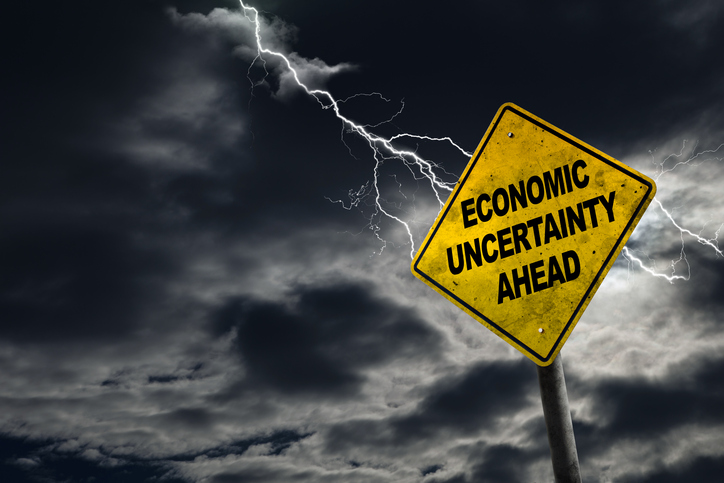Gil’s Musings
Navigating Economic Cycles: Finding Stability Amidst Crisis

As we discern our crazy economic landscape, it’s important to reflect on the cyclicality of the crises that have shaped the U.S. economy over the decades. From rising energy prices in the 1970s to today’s concerns over tariffs, each period presented challenges and adaptation opportunities.
History proves that volatility cannot sustain, and things return to something of a stable “normal”. Any actions to adapt to what seemed inevitable at the time, would have likely produced terrible outcomes. Remember also that pundits who paint a credible picture of doom, often have been incorrectly predicting the same for a long time. When the stars align to confirm their past writings, it is easy to view their opinions as prescient, when in fact luck prevails over insight.
In the 1970s, we witnessed an era marked by rising energy prices, the oil embargo, rampant inflation, and soaring interest rates. This was followed by the attempted assassination of President Ronald Reagan, which, coupled with the principles of Reaganomics, surprisingly ignited an economic boom.
The tech revolution of the late 1990s brought about stellar stock market performance, only to be followed by a dramatic -50%(+) crash. In retrospect this is just a blip on the chart with hundreds of stocks today 10x what they were back then. Emotional trauma? Yes. Doom? No.
The early 2000s introduced us to a property boom fueled by low interest rates, but this also led to bank exploitation and the subsequent credit crisis, resulting in another significant stock market crash of -58%.
The onset of COVID-19 then shook the foundations of our economy once again. And now, here we are, grappling with tariffs as the latest crisis du jour, with many predicting dire outcomes. Each of these past crises led to new market highs. The key is not to foretell the future, but to remain patient, don’t over-lever your balance sheet, don’t over-spend from your accounts, and hang tight.
Having spent over 40 years observing markets and people, I’ve heard this fear narrative unfold time and again. History shows us that businesses have an incredible ability to adapt to new normals. Despite my more cynical instincts that sometimes suggest we are on the brink of an all-out trade war—or even something more catastrophic—I rely on the persistent pattern I see: a new narrative unfolds, the economy stabilizes, and stock prices tend to rise as businesses find their footing.
Mr. Trump clearly likes to play hardball. Let’s face it: it has worked for him. And our system of government is rife with fraud and payola that span administrations that clearly turned a blind eye and were seemingly “in” on the game. I welcome change, yes, even significant change, and am willing to take my chances that there is a good outcome. Who has a stake in crashing the system? Mr. Trump simply wants to push it to the brink to get realignment of tilted systems. And he has the balance sheet of the world’s largest economy to force everyone else’s hand.
While it’s easy to succumb to the fear of the unknown, such as the potential impacts of current policies, I remain optimistic because capitalism has an incredible ability to right the ship. There’s often more to learn and capitalize on than simply responding to the perceived imminent doom. Moreover, the economic strategies being pursued may not be as detrimental as they appear at first glance.
As we navigate this turbulent period, my inclination is to remain grounded in the ways things have played out before and avoid assuming that “this is the big one.” At Segment, we avoid chasing fleeting trends that predict disaster, and we routinely emerge victorious. Instead, I firmly believe that, as history suggests, we will settle into a new normal, companies will adapt and find renewed opportunities for growth.
Let us remain focused on the long-term strategies that will guide us through these uncertain times.
Please see IMPORTANT DISCLOSURE information.